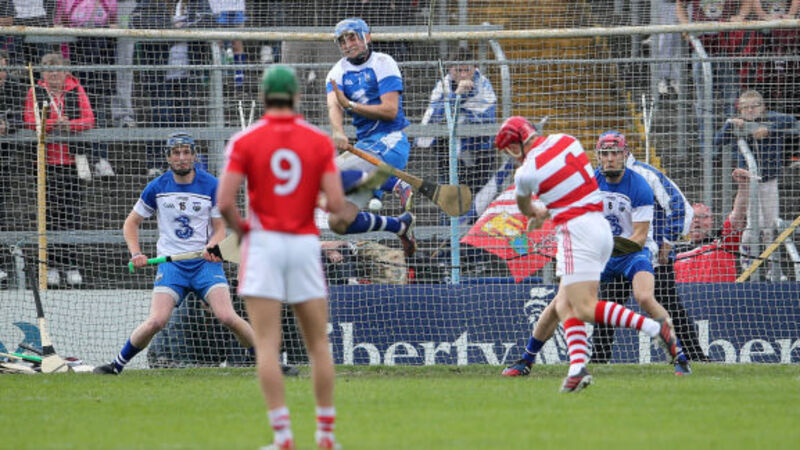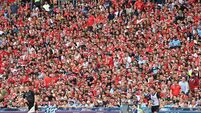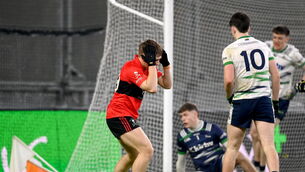Failing to hit the target from 20m

Players wanted to see what studs would be appropriate for the surface but by the low gate at the main tunnel entrance they were halted.
The players were told that the pitch could be damaged if 50 players were to go out in their football boots — even though a ladies’ football game between the U21s of Cork and Dublin had just concluded.














